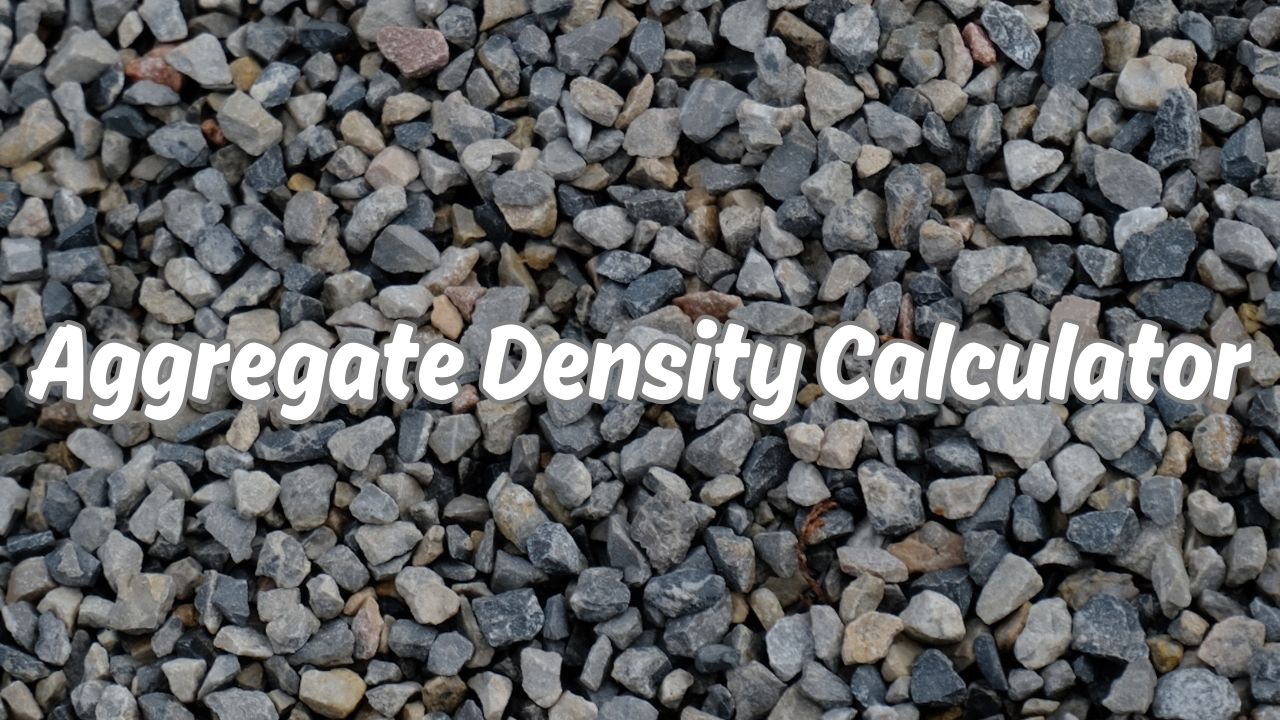Aggregates are an essential component in construction, used in concrete, road base, and other building materials. Knowing the density of aggregate helps in determining material requirements, weight load, and overall structural integrity. The Aggregate Density Calculator allows users to compute density based on mass and volume with different unit options.
Factors Affecting Aggregate Density
1. Mass (M)
- The weight of the aggregate material.
- Can be measured in kilograms (kg) or pounds (lbs).
2. Volume (V)
- The space occupied by the aggregate.
- Can be measured in cubic meters (m³) or cubic feet (ft³).
3. Unit Conversions
- If mass is in pounds (lbs), it is converted to kilograms (kg).
- If volume is in cubic feet (ft³), it is converted to cubic meters (m³).
Formula for Aggregate Density Calculation
Density is calculated using the basic formula:
Density=VolumeMass
Where:
- Density = Aggregate density (kg/m³)
- Mass (M) = Weight of the aggregate (kg)
- Volume (V) = Volume occupied by the aggregate (m³)
Unit Conversions
To ensure consistent units, the following conversions are applied:
Mass Conversion (lbs to kg)
1 lb=0.453592 kg
Thus,
Mass in kg=Mass in lbs×0.453592
Volume Conversion (ft³ to m³)
ft3=0.0283168m3
Thus,
Volume in m3=Volume in ft3×0.0283168
Example Calculation
Let’s calculate the density of an aggregate sample with:
- Mass (M) = 100 lbs
- Volume (V) = 3 ft³
Step 1: Convert Mass to Kilograms
M=100×0.453592=45.36 kg
Step 2: Convert Volume to Cubic Meters
V=3×0.0283168=0.08495 m3
Step 3: Apply the Density Formula
Density=0.0849545.36=534.1 kg/m3
Thus, the aggregate density is 534.1 kg/m³.
Conclusion
The Aggregate Density Calculator helps to calculate the density of aggregate materials by taking mass and volume as inputs and applying the standard Density = Mass/Volume formula. The tool automatically converts units to provide accurate results in kg/m³, making it useful for construction projects, material estimation, and engineering calculations.

Check out 1 similar Aggregate Density Calculator :